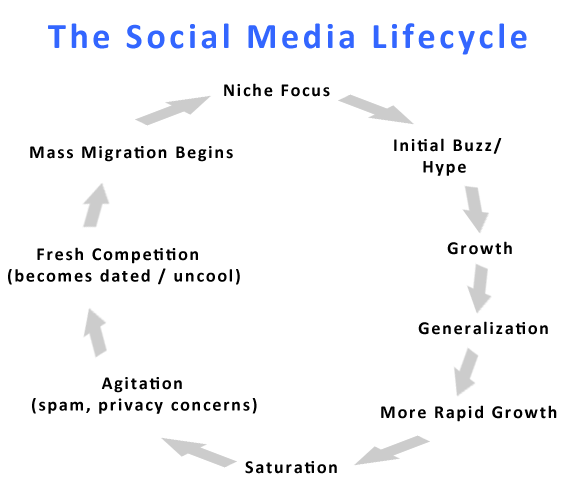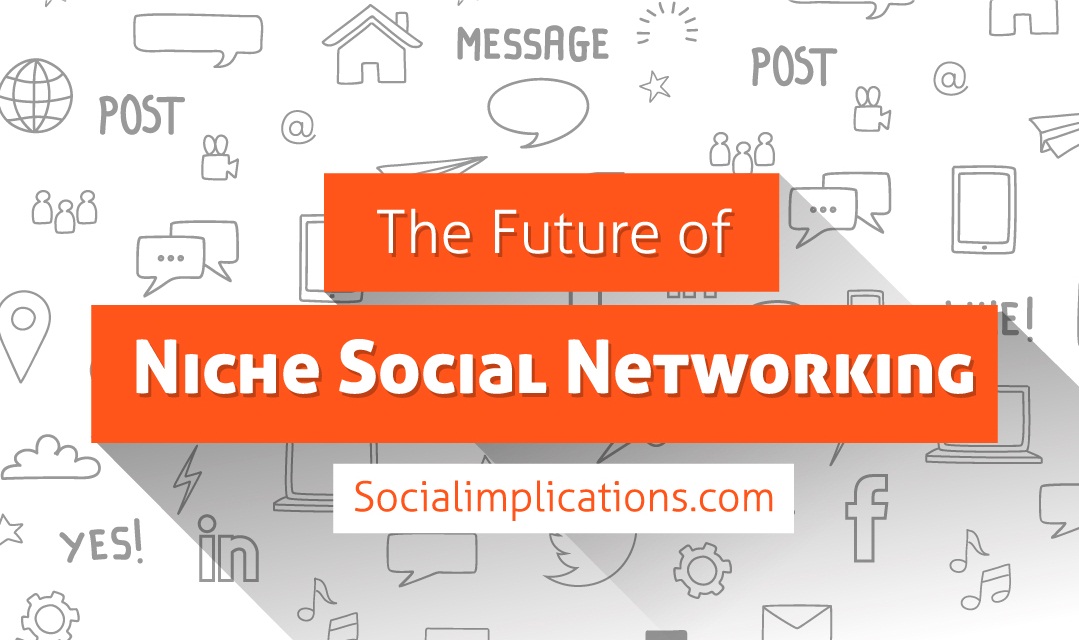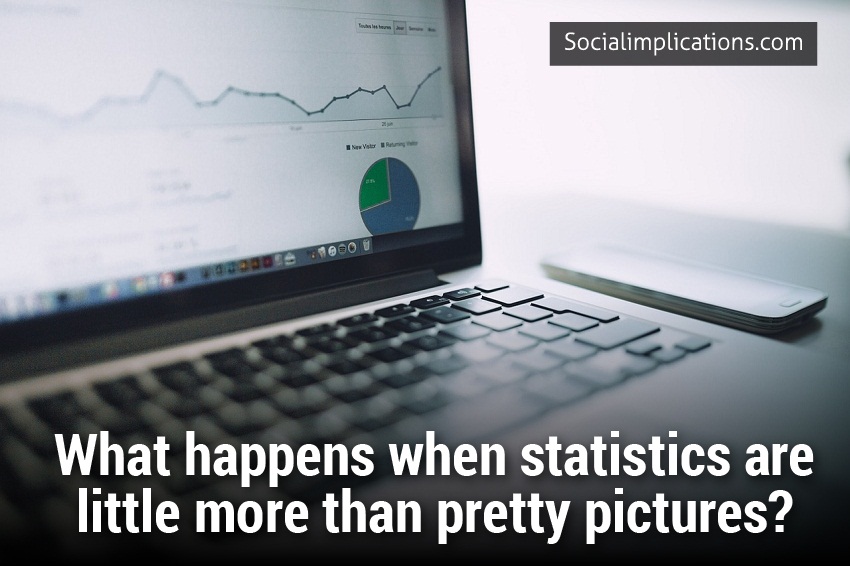I don’t make it a big secret that I’m not a fan of Facebook. Yet I don’t let the hype about the site get me down too much. That’s because I know it won’t be around forever — at least not in its current dominant role. You know how they say we can learn a lot from history. Well, that goes beyond war and politics. We can learn a lot about social media from its (brief) history as well. And that history shows a common social media lifecycle — one that I see Facebook already taking part in.
This isn’t an anti-Facebook post though. They’re just the largest current example of a social media site that seems to be going through this process. So let’s talk about it, where Facebook seems to be, and where some other big social media players are right now.
The Social Media Lifecycle: What it Applies To
I think it’s important to note that this social media lifecycle doesn’t apply to all social media properties equally. Not only will there always be exceptions to the rule, but this is something I’ve mostly observed from social media sites that start out with a niche focus and move into more general appeal. Those that stick to being niche social networks might not all be immune, but they do seem to go through the process much more slowly if at all. So, for example, this observation of a possible social media lifecycle would apply to sites like Myspace, Facebook, and Digg. However, we’ll mention a few that started out more generalized as well including Squidoo and StumbleUpon.
The Social Media Lifecycle: What it Looks Like

Myspace: Going Full Circle
Myspace is one of the best examples of this social media lifecycle in action because it’s gone full circle. It started out with a fairly good reach in the music niche. But with the hype and buzz surrounding the site it started to grow. And that growth morphed into a more general mass user base (at that time, largely “fans”). So the site catered to that more general audience, eventually trying to do too much (connecting long lost classmates, serving as a classified site, and more).
Spammers took notice and hit the site hard. Myspace couldn’t (or at least didn’t) keep up with the social network spam. People got pissed off. Facebook began opening its doors to more users and became new competition. People wanted someplace else to go, so they left Myspace in droves. Myspace became the “uncool” place to be somewhat quickly. Traffic took a dive. And the last I heard, they were attempting to go back to their original niche focus of specializing in social networking around music and entertainment.
Other Social Media Sites: Following a Predictable Pattern?
I don’t expect everyone to agree with me about this little lifecycle idea. But I’m fairly confident in it after watching trends with several other social media properties. I started taking part in a lot of the bigger social media sites when they were fairly new. Many of them initially targeted webmasters, online business owners, and those interested in SEO — audiences I worked with through my former firm, so I stayed well on top of these tools. Interestingly, quite a few are already along the lines of being dated. Their novelty has worn off with at least a segment of that initial user base. And that’s often a result of spam, followed by better (or at least newer) tools coming along.
Squidoo is an interesting example. Take a look at their pageview stats at Alexa.com. (Note: I don’t claim Alexa stats are completely accurate or that it’s a great tool — I find most site metric sites to be seriously lacking. They’re used solely for comparison purposes.)
You’ll see that in 2009 we went from relatively stagnant (although somewhat erratic) pageview levels to seeing a definite increase by early 2010. It appears that the initial user base kind of leveled off, and then there was newfound interest. That jives with anecdotal evidence — most people I know who used Squidoo heavily when it was new have long since moved on. It appears to be in that phase of either saturation or nearing it with a broadened group of users.
Now Squidoo really is interesting in that I don’t think we’re going to see traffic suddenly die off any time soon. I can see their site rounding the curve fairly slowly, and for a few reasons.
- Users can directly make money from Squidoo lenses.
- Squidoo has a massive amount of public content, that will continue to attract search traffic to lenses even long after people stop posting new ones (unlike social networks where much of that information is not bringing in search traffic).
- While Squidoo has had its share of spam issues, I think they did a better job of heading some of it off than other social media sites have (such as by banning lenses on specific popular spam topics).
Squidoo used to heavily appeal to people wanting to promote their businesses. Now most of the times I hear people talking about Squidoo, it’s coming from content producers who consider it a “make money online” opportunity better than some of the more typical revenue share content sites.
StumbleUpon followed a very similar path a couple of years ago, with the original tech-savvy audience in large part moving on and leaving it to a much broader user base. As of now that userbase still seems to be growing — that rapid growth phase I mentioned before saturation hits. I have to give StumbleUpon credit for getting past multiple spam waves early on and still continuing to grow (both spamming by constantly submitting your own sites and no one else’s, and stumble exchange spam). But like I said, there are certainly exceptions. And I have a feeling StumbleUpon will probably be another one that sticks around a bit longer, even if it’s minus the initial buzz.
Digg is another example. It had a heavy focus in the tech niche. That seems to have expanded quite a bit. The front page results of Digg look a lot different now than they did a few years ago — with a much heavier emphasis on mass-appeal topics from entertainment to weird news and just flat out hyped up headlines.
If you view the same general pageview trends for that site, you’ll also see growth in 2009. But if you look to 2010, you’ll see what appears to be that saturation phase beginning as things start to level out a bit more. Well, that or a temporary plateau at least. You’ll actually see a very similar trend with Facebook’s pageviews during the same time period.
Predicting the Future of Facebook
I certainly wouldn’t be upset to see Facebook go. But I doubt we’ll be completely rid of it any time in the foreseeable future. I’ve been predicting for a couple of years now that I don’t see spam necessarily being the big Facebook-killer (although it can always play a role if they don’t stay on top of it). Instead I think it’s action rather than inaction that will be the big agitating factor. More specifically, I think it’s going to come down to their privacy policies.
And even if by some miracle they don’t yet again piss off their users with privacy concerns, eventually that “uncool” status is bound to set in. After all, this is social media where it always seems to be about what’s next and who’s going to get there first. While they might be stuck somewhere between the saturation and agitation points now, that’s likely where they’ll stay until a suitable competitor comes along. Is it Twitter? Or will it need to be something more typically like what we picture as a “social network?”
So tell me. Can you think of other examples of social media sites that seem to fall within this general social media lifecycle? Do you personally see other steps along the way? Leave a comment to tell me what you think.














I’ve been on Squidoo since 2007, and one aspect of the “cycle” that you also need to take account of, is the part played by Google.
I would amend the history of Squidoo to the following: revolutionary new concept when it starts up (encourages in-depth user driven content and shares revenue with the those who make the content), lovely platform, attracts lots of new people, including marketers who see the opportunity to sell directly from Squidoo or get a backlink from a Squdioo lens. The search engines love the platform too and the spammers start to notice this, and then start to hammer the site really hard. In the meanwhile, Hubpages sets up in competition using the business model Squidoo pioneered (in depth user generated content, and revenue sharing).
Then Google intervenes. They “slap” Squidoo hard for the spam. Even innocuous new lenses take weeks to get indexed, let alone rank. It’s a sitewide penalty. Being slapped by the search engines means that you lose traffic and lose revenue, as it is the targeted visitors from Google et al who buy products and click ads.
Regular users got discouraged, and some left for Hubpages. Some of the spammers also departed (though those who simply wanted a backlink stayed).
Then in mid 2009 Squidoo started the Great Clean-Up, where they banned whole categories of subjects, including the heavy spam ones such as adult and pharma. That cleared out the backlink spammers.
Google takes notice, and lifts the penalty – that’s the real reason why traffic has risen in 2010; the search traffic has returned.
Squidoo is in the throes of another reinvention with a Farmville type game introduced to incentivise the community to do more policing of spam.
I think if you look closely at My Space you see something similar – a Google intervention. As soon as the spammers move in, Google applies a penalty to the entire site. And they don’t lift it till the site has dealt with their spam problems.
If you check the search results, you will not see MySpace pages at all – though you see plenty of Facebook pages. To me this indicates that MySpace hasn’t “got it”, and will struggle to regain it’s former traffic (and profit), because Google still thinks it’s a spam site. It’s not the dedicated users who pay the bills on these sites, it’s traffic from Google. If you lose the search traffic, your business model shrivels.
(P.S. Just realised what a long comment I wrote. Got carried away as v interested in this topic, but not many are discussing it).
Google plays a role, but isn’t necessarily the biggest. In the end, the spam is about money. Google is just a means to an end, and not in all of these social media lifecycle cases. For example you mentioned Myspace. Myspace’s spam issue actually had very little to do with search traffic at its height. The vast majority of that spam took place privately — places not seen by Google. Myspace messaging for instance became a big money area for Internet marketers of the time. And they did that not with search traffic, but by using bots to friend massive numbers of people. In those earlier days it was easier for them to get the friend-backs because there was this “oooh, someone wants to be my friend” mentality where many people either automatically approved them or simply didn’t understand that these weren’t real people (hence the focus on creating fake “hot chick” profiles to get men to approve the friend requests).
Google played a bigger role in Squidoo’s spam for sure. But it was still rooted in money. If it were only about links and traffic no one would have used Squidoo. They would have stuck to the well-established article directories that already gave them that (and which still rank well in search engines, which is frankly beyond me given the spammy nature of the crap there and the fact that the content is basically purchased for links, against Google’s “link sale” terms).
Even though spammers leave when a site is Google-slapped, that’s not really the audience I was concerned with here. I’m more thinking of the legitimate users who tend to leave before something like that happens — like the mass exodus from Myspace b/c the company took far too long to address the spam issues and people were presented with another social networking option at the right time. It’s the legitimate use of social media sites that tends to go through these lifecycles, where they always attract spammers in massive numbers, and the imminent success or failure of the service seems to rely very heavily on how the company deals with those spammers. Unfortunately that’s an area many social media sites ignore or underestimate the importance of until it’s too late and their target userbase is already completely disenchanted with the service.
Hi Jenn:
I came into Facebook, feet dragging and skeptical. The ONLY reason I signed up was for my business, but I really have not moved forward on that. I planned on adding a Fan Page when I got my new website & blog more developed. The Fan page hasn’t happened for a few reasons. The first being I really don’t like some of the actions of Facebook.
I really hate the way they activate new features and default your choices about them without even telling you about it. I wrote a recent post on their Places feature. You find out when someone in the blogosphere exposes it, then you have to jump through all kinds of administrative hoops to undo the default.
To be fair, I have enjoyed connecting with old friends and sharing photos, but there are other ways to do that. I have been a victim of identity theft 3 times and hate these sites that violate your privacy again and again.
I was probably the last living being to buy a microwave, VCR and cell phone. It’s not that I don’t like technology-love it. I simply have never been one to “follow the crowd.” I think I need to remind myself about that when thinking about Facebool.
Thanks for always telling it like it is, Jenn.
I agree, and Facebook’s choices and actions as a company are a big part of why I continue to refuse to use that site. It seems like every time there’s a new way to screw with people’s privacy, Facebook’s in there just itching to lead the way.
And you’re right. There are definitely other ways to connect with old friends and classmates — from alumni associations to sites specifically set up for that purpose (which Facebook can no longer claim). Unfortunately though, they won’t lay off the privacy issues until people start speaking with their feet. When people respect their own privacy enough to pick up and leave on a large scale, they’ll change or they’ll be replaced (inevitable at some point anyway). One of the biggest problems is that the users don’t respect their own privacy, or the privacy of others whose information Facebook allows them to share.
As for “telling it like it is,” you know me… always. 😉